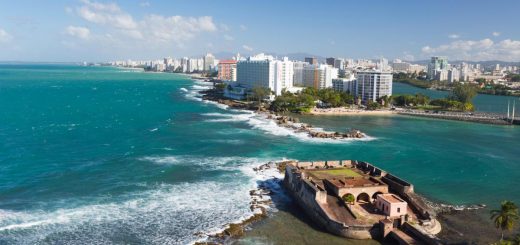Must-See Places if You Are Traveling to Greece According to Avid Traveller Nate Nordvik
 Greece, a country renowned for its ancient history, stunning landscapes, and vibrant culture, remains one of the top travel destinations in the world. Avid traveller Nate Nordvik from Saint Paul, Minnesota, shares his insights on the must-see places in Greece that offer a blend of historical significance, natural beauty, and cultural richness. According to Nate Nordvik from MN, these destinations provide an unforgettable experience of Greece’s diverse and enchanting allure.
Greece, a country renowned for its ancient history, stunning landscapes, and vibrant culture, remains one of the top travel destinations in the world. Avid traveller Nate Nordvik from Saint Paul, Minnesota, shares his insights on the must-see places in Greece that offer a blend of historical significance, natural beauty, and cultural richness. According to Nate Nordvik from MN, these destinations provide an unforgettable experience of Greece’s diverse and enchanting allure.
Athens: The Cradle of Western Civilization
Athens, the capital city, is the starting point for any journey through Greece. Nate Nordvik emphasizes that Athens is a city where ancient history and modern vibrancy coexist seamlessly. The Acropolis, with its iconic Parthenon, is a testament to the city’s ancient glory and is a must-visit for anyone interested in history and archaeology. According to Nate Nordvik from MN, the Acropolis Museum and the National Archaeological Museum are essential stops for understanding Greece’s rich cultural heritage.
Beyond its historical sites, Athens boasts a lively contemporary culture. The neighborhoods of Plaka and Monastiraki offer charming streets lined with shops, cafes, and tavernas. The foam factory, a popular nightlife venue, is ideal for those looking to experience the city’s energetic nightlife.
Santorini: The Jewel of the Aegean Santorini, with its breathtaking views and iconic white-washed buildings, is one of the most picturesque destinations in Greece. The island’s stunning sunsets, particularly those viewed from the town of Oia, are a highlight not to be missed. The island’s unique geological features, including its volcanic caldera and black sand beaches, add to its allure. Santorini’s rich history is evident in the ancient ruins of Akrotiri, a Minoan Bronze Age settlement preserved by volcanic ash. Exploring the island’s wineries, where visitors can sample local wines made from indigenous grape varieties, is highly recommended. The island’s culinary scene, with its emphasis on fresh seafood and local produce, provides a delightful gastronomic experience.
Crete: The Land of Legends Crete, the largest of the Greek islands, offers a diverse range of attractions, from ancient ruins to stunning landscapes. The Palace of Knossos, the center of the Minoan civilization and one of the most significant archaeological sites in Greece, is a major highlight. The Heraklion Archaeological Museum, which houses artifacts from Knossos and other Minoan sites, is a must-visit. Crete’s natural beauty is equally captivating. The Samaria Gorge, one of Europe’s longest gorges, offers a challenging yet rewarding hike through dramatic landscapes. The island’s pristine beaches, such as Elafonissi and Balos, provide a perfect setting for relaxation and enjoying the crystal-clear waters of the Mediterranean. Exploring Crete’s charming villages, where visitors can experience traditional Cretan hospitality and cuisine, is highly recommended. The island’s vibrant culture, with its music, dance, and festivals, adds to its unique appeal.
Meteora: The Monasteries in the Sky Meteora, a UNESCO World Heritage site, is renowned for its monasteries perched atop towering rock formations. Meteora is a place of incredible natural beauty and spiritual significance. The monasteries, some of which date back to the 14th century, offer a glimpse into the ascetic life of Orthodox monks and provide breathtaking views of the surrounding landscape. Visitors to Meteora can explore the monasteries, hike the numerous trails, and enjoy the panoramic vistas. The Great Meteoron Monastery, the largest and oldest of the six still-active monasteries, is recommended for its impressive architecture and historical artifacts.
Rhodes: The Island of the Knights Rhodes, an island with a rich medieval history, is another must-see destination in Greece. The Old Town of Rhodes, a UNESCO World Heritage site, is known for its well-preserved medieval architecture and cobblestone streets. The Palace of the Grand Master and the Street of the Knights are essential visits for their historical significance. Rhodes also offers beautiful beaches, such as Lindos and Tsambika, where visitors can relax and enjoy the Mediterranean sun. The island’s vibrant nightlife, particularly in the town of Faliraki, provides a lively contrast to its historical sites. Exploring the island’s traditional villages and tasting local delicacies adds to the richness of the experience.








